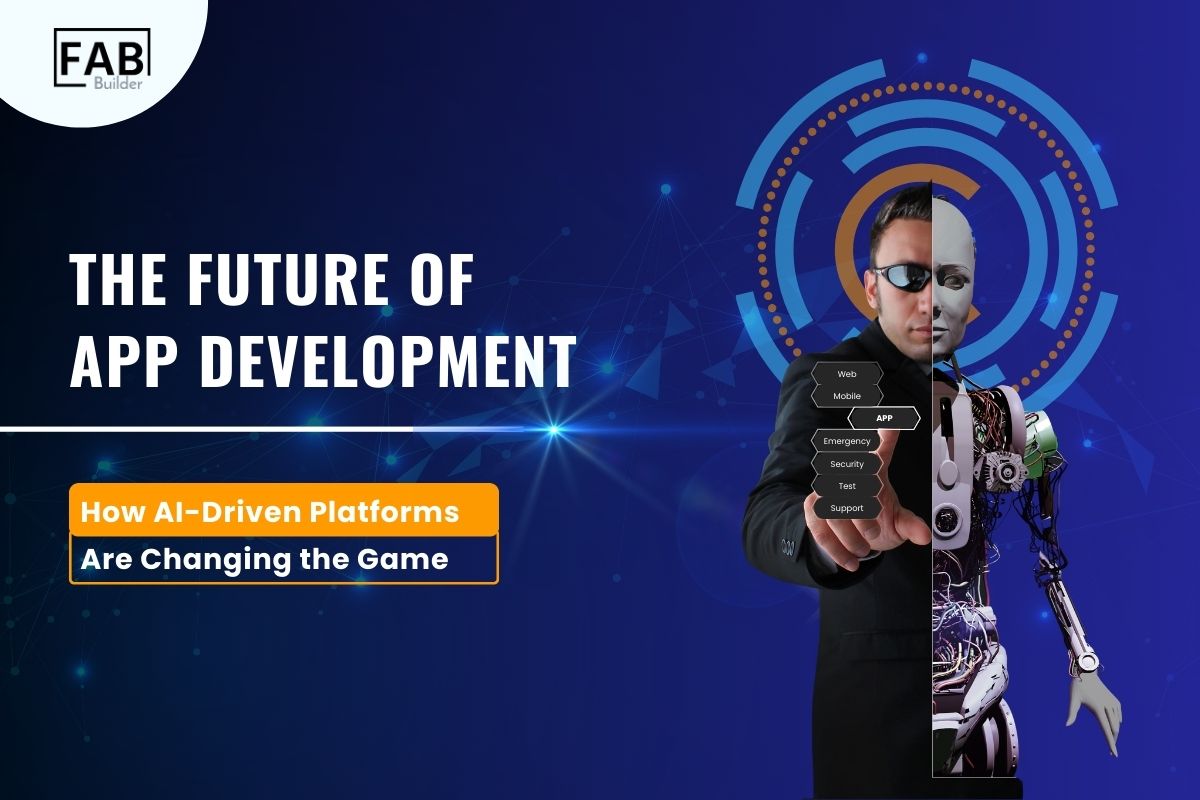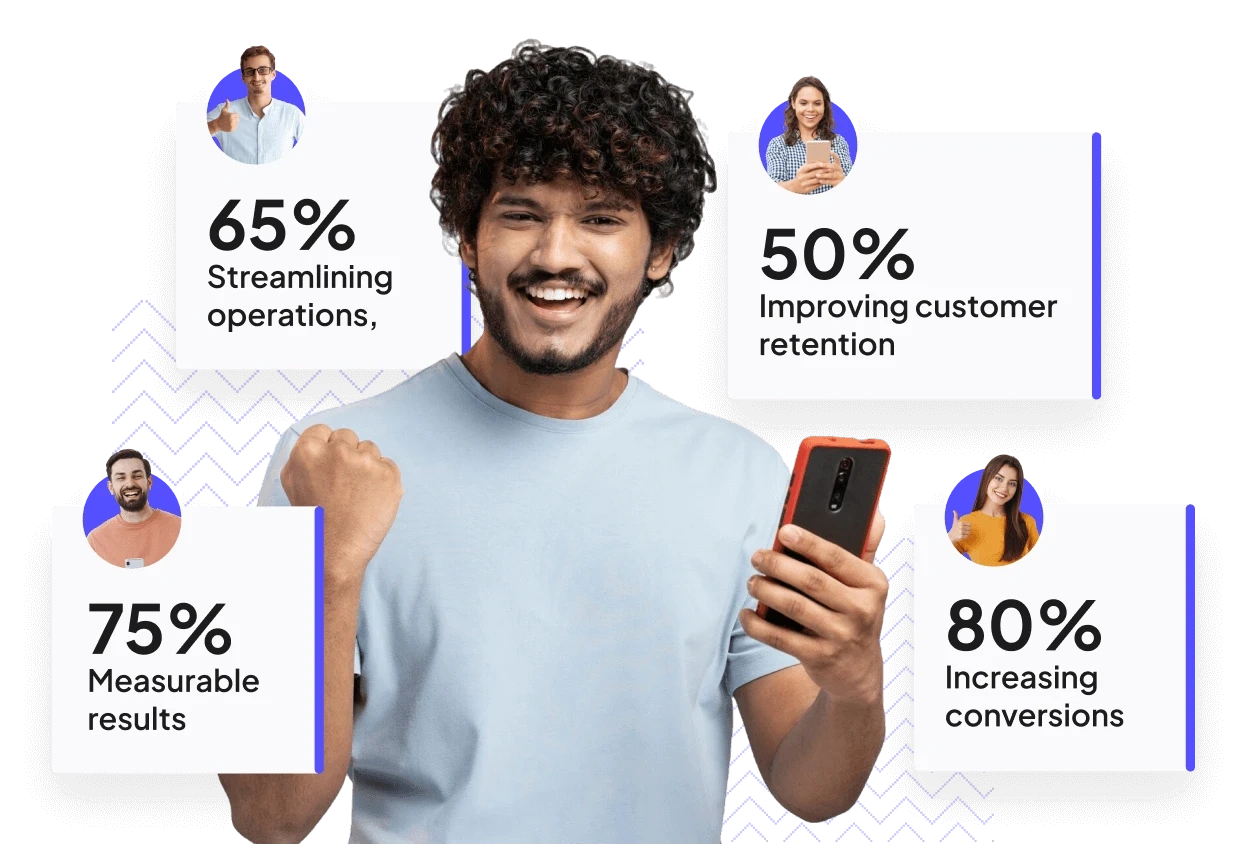As artificial intelligence (AI) grows more prevalent, the app development market is evolving quickly. AI-driven platforms are transforming how apps are created, used, and accessed, so this is more than just a fad. AI’s contribution to app development is becoming increasingly vital as companies and developers seek to optimize workflows, cut expenses, and produce more customized user experiences. Let’s explore how AI-driven platforms transform app development and what lies ahead.
1. Enhanced Efficiency and Speed of Development
AI-powered systems play a crucial role in app development by automating time-consuming tasks, significantly reducing development time. This allows developers to focus on the more complex and creative aspects of app creation, enhancing the efficiency and speed of development.
AI algorithms, for example, can automatically recommend whole modules or only code snippets based on the functionality needed. AI is already being used to help with coding on platforms like Fab Builder, GitHub Copilot, and Tabnine, which speeds up and improves the efficiency of the development process. This change lowers the total development costs while simultaneously quickening the time to market.
At Fab Builder, we leverage AI-driven tools that simplify the coding process, enabling developers to create high-quality applications quickly and efficiently. Our solutions automate routine tasks, freeing up valuable time for innovation and creativity.
2. Better Debugging and Code Quality
AI’s ability to analyze large volumes of code in real time allows it to identify mistakes, defects, and potential vulnerabilities more quickly than human engineers. Code review tools with AI capabilities can predict and highlight code sections that may cause performance issues or security flaws based on historical data. This proactive debugging approach results in faster, more secure, and robust programs.
Machine learning models can also forecast the effects of code modifications to help developers make wise judgments and avoid potential hazards that can impair app performance. This cycle of continuous learning and development consistently improves code quality over time.
3. Customised User Interfaces
AI’s ability to analyze user behaviour and preferences is a significant advantage for app developers, as it allows for highly personalized user experiences. AI-powered systems can generate personalized features, suggestions, and content, which is increasingly important in today’s competitive app industry where user engagement is key.
AI algorithms can categorize users based on user behaviour and forecast which features or content would be most appealing to them. This enables companies to provide individualized experiences that boost customer happiness and retention. AI-driven chatbots, for instance, can offer customized assistance, and recommendation engines can recommend goods or services based on the user’s preferences.
4. Predictive Analytics and Decision-Making
AI-powered systems make it possible to foresee market demand, user behaviour, and trends using predictive analytics. App developers and companies may make data-driven choices on anything from feature prioritization to marketing tactics using machine learning models. Companies can swiftly adjust and remain ahead of the competition by using predictive analytics to help detect possible opportunities or threats.
AI, for instance, may forecast future user requirements or probable drop-off places by analyzing app usage trends. By proactively addressing these issues, businesses may lower churn rates and increase customer engagement. This vital skill, the capacity to predict and capitalize on future trends, may significantly impact an app’s success.
5. Voice Recognition and Natural Language Processing
AI-driven platforms also heavily influence speech recognition and the integration of natural language processing (NLP) technology. The development of NLP and speech AI has increased apps’ conversational and interactive nature. These technologies are changing how consumers engage with apps, from voice-activated instructions to virtual assistants.
NLP improves user experience by enabling apps to comprehend and react to user inputs in a more human-like way. Conversely, voice recognition offers a level of convenience that increases program usability and accessibility. We may anticipate increasingly logical and organic interactions inside applications as these technologies develop.
6. Automated Testing and Deployment
AI-driven platforms are also revolutionizing app development throughout the testing and deployment stages. Thanks to automated testing solutions driven by AI that can run several test cases simultaneously, apps can be properly tested in a fraction of the time it would take to do it manually. This enhances the app’s overall quality while also quickening the development cycle.
AI may also optimize deployment tactics by examining performance indicators and recommending the ideal release schedules and techniques. AI is increasingly used in continuous integration and deployment (CI/CD) pipelines to automate and optimize the release process, making it less error-prone and more efficient.
7. Resource Optimisation and Cost Reduction
AI-driven platforms can substantially reduce development expenses by automating certain parts of the process. Businesses may more efficiently spend their expenditures since coding, testing, and maintenance chores demand fewer resources. Additionally, AI may aid in resource optimization by anticipating workload needs and allocating resources appropriately, ensuring that apps operate at peak efficiency without incurring needless costs.
This cost-effectiveness may be a game-changer for startups and smaller enterprises, allowing them to compete with bigger ones with more substantial resources. Because AI can make app creation more accessible, the industry is becoming more innovative and competitive.
8. Upcoming Patterns: The Development of Low-Code and No-Code Platforms
One of the most exciting trends pushed by AI is the growth of low-code and no-code platforms in app development. These platforms use pre-built components and graphic interfaces, allowing individuals with little to no programming skills to develop useful apps. These platforms are powered by AI, which enables intelligent suggestions and drag-and-drop functionality, opening up app creation to a broader audience.
These platforms will advance in sophistication as AI develops, making it possible to create more intricate and personalized apps without requiring a deep understanding of coding. As a result of this change, app development activity may increase as more people and companies realize their ideas without the usual obstacles.
Conclusion
AI-powered platforms radically change the app development process rather than merely improve it. Only a few years ago, AI altered the game in unthinkable ways, from allowing personalized experiences and predictive analytics to expediting development and enhancing code quality. The usage of AI in app development will only grow as time goes on, producing ever more creative, effective, and user-focused software.
Adopting AI-driven platforms is becoming essential for companies and developers to remain competitive in the constantly changing app market. Fab Builder is at the forefront of this transformation, providing tools that enable developers to simplify their development process and meet the demands of modern users. AI is the engine driving the app creation of the future. Ready to accelerate your app development with AI-driven solutions? Contact us today to see how we can bring your app idea to life, faster and smarter!
Frequently Asked Questions
1. What is AI-driven app development?
AI-driven app development uses artificial intelligence to automate tasks like coding, testing, and bug detection, making the development process faster and more efficient.
2. How does AI speed up app development?
AI speeds up development by automating repetitive tasks such as generating code and testing, allowing developers to focus on more complex work and reducing time to market.
3. How does AI improve user experience?
AI personalizes the user experience by analyzing user behavior and suggesting features or content tailored to individual preferences, enhancing engagement and retention.
4. How can Fab Builder help with AI-driven app development?
Fab Builder provides AI-powered tools that simplify coding, testing, and deployment, enabling developers to create high-quality, efficient apps quickly.

